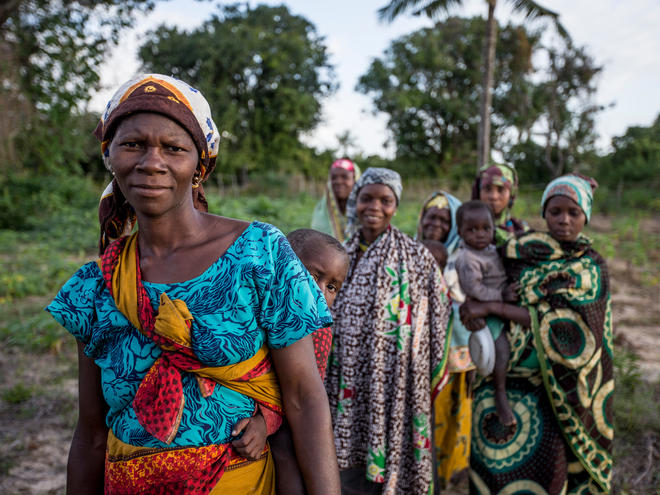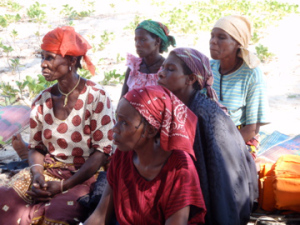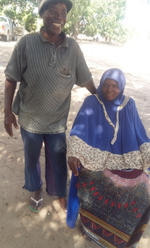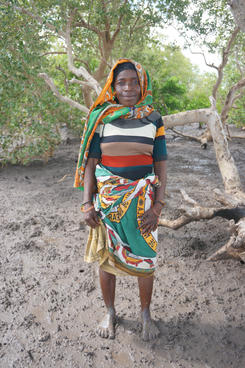
As WWF works with communities around the world to preserve habitats, wildlife, and natural resources, we know that it is critical to engage both women and men for the best results—environmentally, socially, and economically.
In sub-Saharan Africa, women make up at least half of subsistence, smallholder farmers, yet have far less access to farming inputs, from seeds and fertilizer to finance and markets. According to the UN’s Food and Agriculture Organization (FAO), if men and women in rural areas around the world had equal access to agricultural resources, they could increase yields on their farms by 20%-30% and lift 100 million-150 million people out of hunger.
Working with communities in Mozambique and Tanzania, the CARE-WWF Alliance empowers women to improve their livelihoods and sustainably manage the natural resources on which they depend. In this partnership, we have witnessed firsthand how important women are to organizing communities, conserving natural resources, creating economic opportunities, and setting up the next generation for success. Here are a few who have inspired us over the years:
The Leader
At first blush, Alima Chereira is similar to many Mozambican woman—wife and mother of six who spends her days tending to the family farm, collecting wood for cooking, fetching water and managing a busy household. But Chereira pushes beyond these responsibilities. Besieged by drought brought on by climate change and other pressures on her community’s natural resources, Chereira decided to be the change she wanted to see in the world. With help from a local extension agent, Chereira formed an agricultural association exclusively with other women. Together, they learned conservation agriculture techniques through an Alliance Farmer Field School. The women were so impressed with the techniques that they established more associations to share these climate-resilient farming practices with others. Said one of the women in her community, “Alima has been more than we could have hoped for in a leader. She is patient and encouraging, but also convincing—and she believes in us as we believe in her.”
The Wealth Builder

In a growing number of villages across Mozambique and Tanzania, hundreds of women and men are working with the Alliance and local partners to establish Village Savings and Loan Associations. By harnessing the ancient practice of group savings and pooling their wealth for small loans, poor men and women are ensuring they have savings or can take loans to cover unexpected expenses or invest in their future. But before the Alliance reached her island near the Primeiras e Segundas archipelago, Fatima Apacur had already helped her community form a savings association. When the Alliance arrived to support establishment of savings and loan associations, Apacur and her husband trekked to the session to learn more about finance so they could improve their community’s prospects for the future even further. Today, women and men in the Alliance and other village savings and loan associations in and around the Koti Islands have used their new savings practices and improved access to finance to put their children through school, cover unexpected expenses like health care and disaster recovery, and invest in new businesses that continue to provide income for them and their families.
The Voice

A farmer and mother of six, Angela exemplifies the power of dialogue. In her community of Saua Saua and elsewhere, tradition dictated that men deserved the respect of a full meal, even if it meant that women and children would go hungry. There, the Alliance led a series of workshops to explore with men and women the impact that malnutrition can have on their families’ and communities’ well-being. As Angela told us in 2016, “One of the greatest changes occurred after a dialogue we took part in about food access. It helped us realize that every family member has the right to food and that children, pregnant women and women of childbearing age have special nutritional requirements that should be prioritized.”
The Sustainers
Magreth Chilala, Brighita Kambona, and Zainabu Noel farm sesame seeds in southern Tanzania’s Nachingwea district. Their traditional methods of farming entailed scattering seeds and planting the sesame close together, which yielded skinny plants with fewer seeds. Rather than planting on the same land, they cut down trees and burned them every year to create new farms to keep production going. But after becoming among the first members of the Alliance’s Farmer Field and Business Schools, they learned climate-smart agricultural techniques—such as spacing the plants more deliberately—could dramatically improve their yields. As Kambona told us, “climate-smart agriculture has allowed us to increase our productivity, the plants are healthier, and have many branches.” And they help their local environment, as well, by maintaining forests instead of clearing them for new farms.
The Protector

Like many fisheries around the world, coastal Mozambique’s stocks have been depleted by poor governance, overfishing, as well as climate changes. To help the stocks rebound, the Alliance helped establish three community-managed fish sanctuaries. Since then, in communities with no-fishing zones, fish biodiversity in the sanctuaries tripled, boasting 50% more species compared with unprotected areas. Due to spillover effects, more than 70% of fishing families reported increased catches. This effort has been successful because of people like Piedade Lucas. As one of eight monitors for the no-fishing zone near her community in Angoche, Mozambique, Lucas’ contribution to protecting this small area is critical to the nutrition and income security, as well as long-term sustainability of her subsistence fishing community.
Published March 07, 2018 at 06:00AM
No comments:
Post a Comment